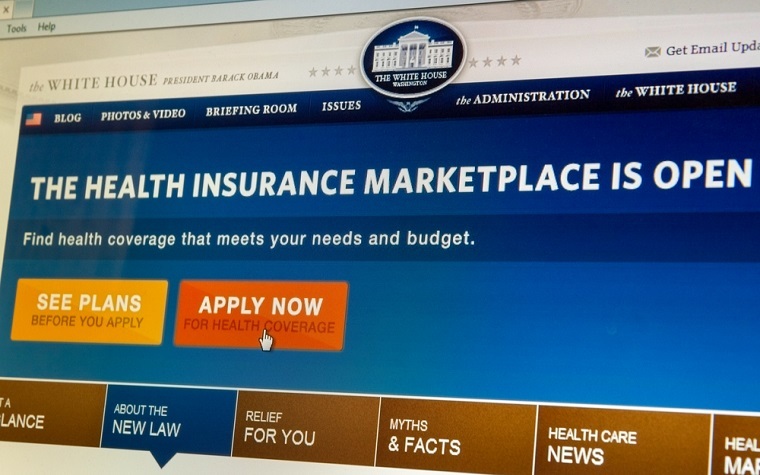Health insurance exchanges for individuals are collapsing and will fall apart no matter who controls the various branches of government following the election, one health expert is predicting.
Moreover, Republicans will continue to push for market-based reforms to health insurance, including letting consumers buy across state lines, according to Doug Truax, founder of Restoration PAC and a health care benefits entrepreneur.
“It is collapsing and lawmakers are trapped,” Truax told Arizona Business Daily.
Premiums on the exchanges for individuals will increase an average of 25 percent next year, the Department of Health and Human Services (HHS) announced this week.
In Arizona, the two remaining health insurers offering plans on the individual exchange will increase their rates by 51 percent and 74.5 percent. Phoenix Health Plans announced in September it is pulling out of the market.
People in 13 of the 15 counties in Arizona have only one option, mirroring what is happening across the country.
This has prompted lawmakers, including Arizona Sens. John McCain and Jeff Flake, to introduce legislation repealing the penalty for those living in areas where there is one or no options.
Truax believes the exchanges will fall apart, and the next administration and Congress will need to manage the transition.
Higher subsidies are likely in the short term as the transition takes place, Truax argues. However, he expects new enrollment to stop.
The question will be how to take care of the people in the exchanges as they fall apart, and “not pull the rug out from under them,” he said.
Truax, along with many other Republicans, want complete reform to make it market based and allow consumers to buy across state lines. States would continue to regulate the insurance industry under the plan.
He said the House will not allow expansion of Obamacare, particularly introducing a single-payer system or a super-sized federal exchange.
HHS Secretary Sylvia Burwell said most of those buying on the exchanges are eligible for financial assistance.
“Thanks to financial assistance, most marketplace consumers this year will find plan options with premiums between $50 and $100 per month,” Burwell said. “Millions of uninsured Americans qualify for financial assistance, and so could as many as 2.5 million Americans currently paying full price for off-marketplace coverage.”
The administration hopes that the campaign to attract younger people to sign up on the exchanges will help balance the pool within the exchanges, adding more healthier people and thereby bringing down premiums.
That will not work, Truax said.
“If you are in your late 20s, you are not going to pay a $500-a-month premium; you are going to pay the penalty,” he said.
Almost one-third of all counties will have just one insurer participating in the exchanges by 2017, according to a recent Kaiser Family Foundation report. This marks a significant increase from the 7 percent of counties that had one option this year. Close to 20 percent of all enrollees will have one option.
Furthermore, 62 percent of enrollees will still have three or more options in 2017, according to the analysis, although that is down from 85 percent this year.
Six U.S. senators, including McCain and Flake, introduced the Protection from Obamacare Monopolies Act on Sept. 7.
The legislation is designed to protect people who live in a county with one or fewer health care insurers offering plans on the Obamacare exchanges from the individual mandate penalty, according to the bill's sponsors. It would repeal the individual mandate penalty in places where people have fewer than two insurers to choose from on the exchanges.
“With Phoenix Health Plans Inc.'s exit from the Obamacare marketplace ... nearly all of Arizona's counties are now left with either one or no options when it comes to health insurance under Obamacare,” McCain said. “This legislation would ensure that Arizonans are not forced to pay a penalty due to the failure of a health care system that was fatally flawed from conception. This failed law will only continue to place undue burdens on Arizona families unless we replace it with solutions that put patients back in charge of their health care.”

